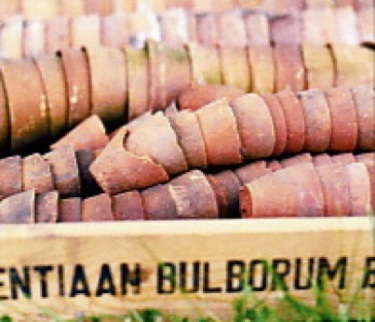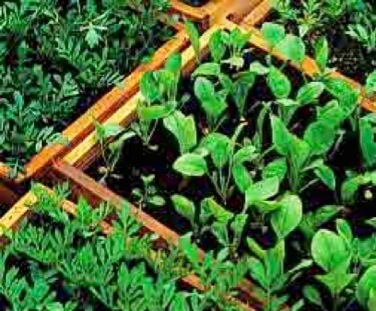Garden Escapees Threaten Habitats
10/04/11 18:12 Filed in: Garden Ecosystem
Over 70,000 different types of plants which are not native here are grown in British gardens. Some of these imported plant species are invasive, and are considered to pose one of the greatest threats to our biodiversity. The problems they cause can include reduced crop yields, harbouring diseases of cultivated plants and even increasing the risk of flooding.
Over 70,000 different types of plants which are not native here are grown in British gardens. Some of these imported plant species are invasive, and are considered to pose one of the greatest threats to our biodiversity. The problems they cause can include reduced crop yields, harbouring diseases of cultivated plants and even increasing the risk of flooding.
Some of the real problem plants which damage natural habitats are garden escapes. They include rhododendron ponticum which poisons the soil around it so other plants cannot grow there, and Japanese Knotweed, which only needs a tiny portion of stem or root to propagate and spread further.
The charity Plantlife has recently looked at the number of non-native plants considered to be on the brink of becoming invasive in Britain, by devising a ‘Rapid Risk Assessment’ screening process.
Amongst the plants on the list are familiar garden cultivars:
false acacia (Robinia pseudoacacia)
tree of heaven (Ailanthus altissima)
butterfly bush (Buddlia davidii and B. globosa)
lawsons cypress (Chamaecyparis lawsoniana)
various cotoneasters, such as horizontalis, bearberry cotoneaster, wall cotoneaster, and late cotoneaster
a number of monbretias (Crocosmias)
Russian vine (Fallopia baldschuaniccal)Spanish bluebell (Hyacinthoides hispanica x non-scripta)
several honeysuckles (Californian, Japanese, Wilson’s and box-leaved)
pyracantha (the firethorns) and
Snowberry (Symphoricarpus)
Also damaging are a number of garden pond plants readily sold in garden centres and pet shops, many of which have already escaped into the wild:
Egeria (e.g. late-flowered waterweed
Azolla (water fern)
Ebdea (Canadian waterweed)
Ludwigia (floating primrose) and
parrot’s feather
Many of these form dense mats which out-compete native aquatics and reduce oxygen levels in fish waters.
The report, Here Today, Here Tomorrow? is available at www.plantlife.org.uk
Some of the real problem plants which damage natural habitats are garden escapes. They include rhododendron ponticum which poisons the soil around it so other plants cannot grow there, and Japanese Knotweed, which only needs a tiny portion of stem or root to propagate and spread further.
The charity Plantlife has recently looked at the number of non-native plants considered to be on the brink of becoming invasive in Britain, by devising a ‘Rapid Risk Assessment’ screening process.
Amongst the plants on the list are familiar garden cultivars:
false acacia (Robinia pseudoacacia)
tree of heaven (Ailanthus altissima)
butterfly bush (Buddlia davidii and B. globosa)
lawsons cypress (Chamaecyparis lawsoniana)
various cotoneasters, such as horizontalis, bearberry cotoneaster, wall cotoneaster, and late cotoneaster
a number of monbretias (Crocosmias)
Russian vine (Fallopia baldschuaniccal)Spanish bluebell (Hyacinthoides hispanica x non-scripta)
several honeysuckles (Californian, Japanese, Wilson’s and box-leaved)
pyracantha (the firethorns) and
Snowberry (Symphoricarpus)
Also damaging are a number of garden pond plants readily sold in garden centres and pet shops, many of which have already escaped into the wild:
Egeria (e.g. late-flowered waterweed
Azolla (water fern)
Ebdea (Canadian waterweed)
Ludwigia (floating primrose) and
parrot’s feather
Many of these form dense mats which out-compete native aquatics and reduce oxygen levels in fish waters.
The report, Here Today, Here Tomorrow? is available at www.plantlife.org.uk


